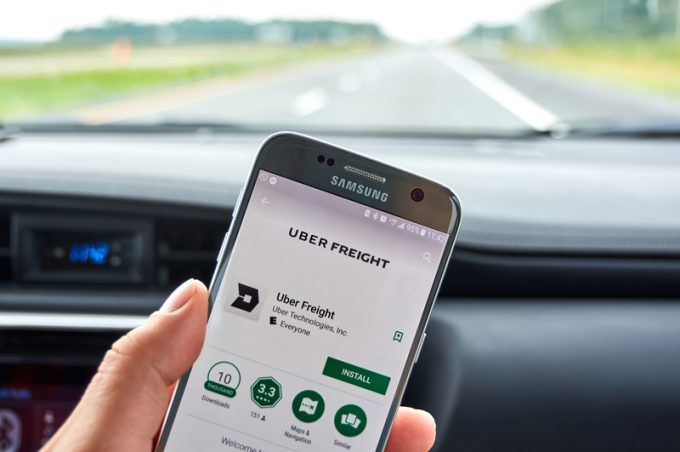South Korea's LX Pantos acquires logistics hub in US
South Korean 3PL LX Pantos said yesterday it had teamed with state-backed maritime financial institution ...

Uber Freight is forging partnerships with software providers in an effort to broaden its appeal, but will it be enough to avoid the chop from its parent company?
Uber is in the process of a strategic review of its business, recently laying off 3,000 employees and closing 45 offices, following an earlier purge that saw over 3,700 staff go.
In an e-mail to employees, Uber CEO Dara Khosrowshahi said management was “making really, really hard choices right now”.
A major part of this ...
Trump tariffs see hundreds of cancelled container bookings a day from Asia
'To ship or not to ship', the question for US importers amid tariff uncertainty
'Disastrous' DSV-Schenker merger would 'disrupt European haulage market'
'Chaos after chaos' coming from de minimis changes and more tariffs
Forto 'sharpens commercial priorities' as it lays off one-third of staff
List of blanked transpac sailings grows as trade war heats up and demand cools
EC approves DSV takeover of DB Schenker
Overcapacity looms for ocean trades – with more blanked sailings inevitable
Amazon Air’s metamorphosis: 'a different air cargo unit from two years ago'
Shippers in Asia restart ocean shipment bookings – but not from China
India withdraws access for Bangladesh transhipments, in 'very harmful' decision
'Tariff hell' leaves industries in limbo – 'not a great environment to plan'


Comment on this article
John @ RSG
June 09, 2020 at 12:06 amUber is making tough choices all right. The question is… is Freight profitable enough? It doesn’t look like it…